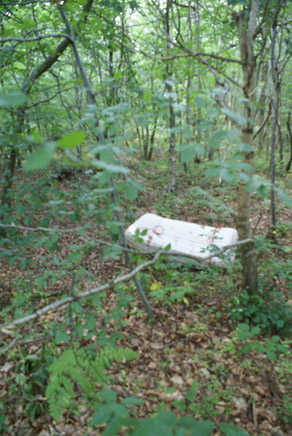For the 2019/20 year, local authorities in England dealt with just under one million (976,000) fly-tipping incidents. That’s an increase of 2pc from the 957,000 reported in 2018/19.
Just under two thirds (65pc) of fly-tips involved household waste. The total of incidents with household waste were 632,000 in 2019/20, an increase of 7pc from 588,000 in 2018/19. As for where fly-tipping happens, last year as in previous years it was commonly on highways (pavements and roads), which accounted for over two fifths (43pc) of incidents.
As for enforcement, councils carried out 474,000 ‘enforcement actions’ in 2019/20, a decrease of 26,000 from the 501,000 in 2018/19; and likewise the number of fixed penalty notices issued was 75,400, down 2pc from the 77,000 the year before. The statisticians said that only the last week of that year coincided with the start of the first coronavirus lockdown; hence it’s not believed that covid-19 has had a noticeable impact on these figures. However, next year could well see a further rise, as people chose to fly-tip in lanes rather than wait for recycling centres to re-open.
Comment
David Renard, environment spokesperson for the Local Government Association (LGA), said: “Fly-tipping is inexcusable. It is not only an eyesore for residents, but a serious public health risk, creating pollution and attracting rats and other vermin. It also costs local taxpayers almost £50m a year to clear up.
“It is good to see a rise in the number of fines issued to the worst offenders in 2019/20. We continue to urge the Government to review sentencing guidelines for fly-tipping, so that offenders are given bigger fines for more serious offences to act as a deterrent. Manufacturers should also contribute to the costs to councils of clear up, by providing more take-back services so people can hand in old furniture and mattresses when they buy new ones.”
The charity Keep Britain Tidy has called on the Government to make fly-tipping an urgent priority by reforming waste carrier licensing, and using income from the landfill tax. Allison Ogden-Newton OBE, Chief Executive of Keep Britain Tidy, said: “The fact that more than a third of all fly-tips (34pc) are small-van size shows that this environmental crime is being driven by ‘man with a van’ operators who are conning the public with what appears to be a cheap way of getting rid of their rubbish, but one that leads to illegal disposal and environmental devastation.”
As for what the waste is, it can be almost anything – white goods and household ‘black bags’; green waste; electrical goods; tyres and vehicles parts; animal carcasses; chemical drums, oil and fuel; clinical; demolition material and asbestos.
The statisticians point out that a council should not necessarily be judged as doing poorly, if it has a lot of tipping; because ‘higher incident numbers are often those being more pro-active and rigorous in identifying incidents’. It may be that more people are reporting fly-tipping. Councils may have large enforcement teams using covert surveillance to better catch professional fly-tippers. The most common size category for fly-tipping incidents was equivalent to a ‘small van load’ (a third, 34pc of the total), followed by the equivalent of a ‘car boot or less’ (at 28pc). In only 33,000 cases was the load tipped estimated as being a tipper lorry load or more.
By region, London had the highest average number of incidents per 1,000 people – 40, while the South West had the lowest at nine incidents per 1,000 people; and the average was 17.
Rob Humby, Deputy Leader and Executive Member for Economy, Transport and Environment at Hampshire County Council, pointed to a single organised crime gang operating in the south east which dumped 30 tonnes of shredded waste at three sites in Hampshire. He said: “Without this, the amount of fly-tipping in Hampshire would have continued to decrease for the seventh consecutive year.”
As for the law, in May 2016 councils in England were given the power to issue fixed penalty notices for small scale fly-tipping; and since January 2019, councils and the Environment Agency can issue fines for breaches of householder duty of care, where householders pass their waste to an unlicensed waste carrier. If you are a private landowner and become a victim of fly-tipping, it is your responsibility to safely dispose of the waste and pay any costs. To check that a contractor employed to remove waste is a registered waste carrier, call the Environment Agency on 08708 506506.
The BBC TV current affairs programme Panorama last month featured ‘Rubbish Dump Britain‘.
Picture by Mark Rowe; fly-tipped mattress in woodland near Sevenoaks in Kent, summer 2020.










